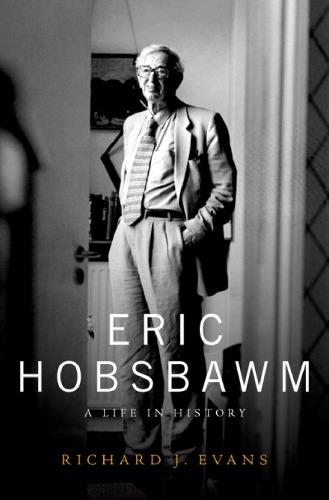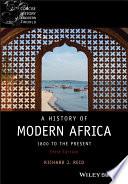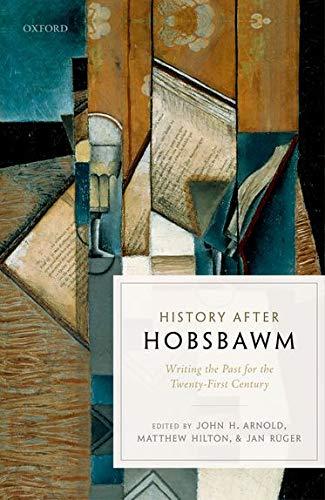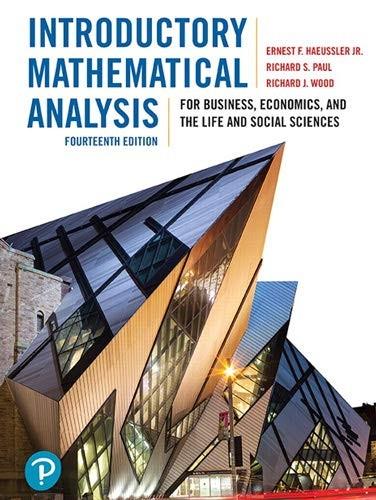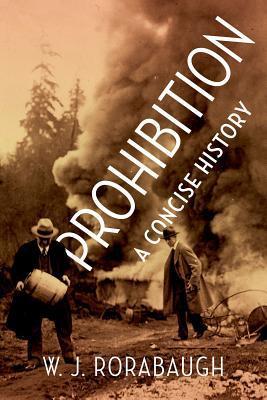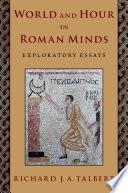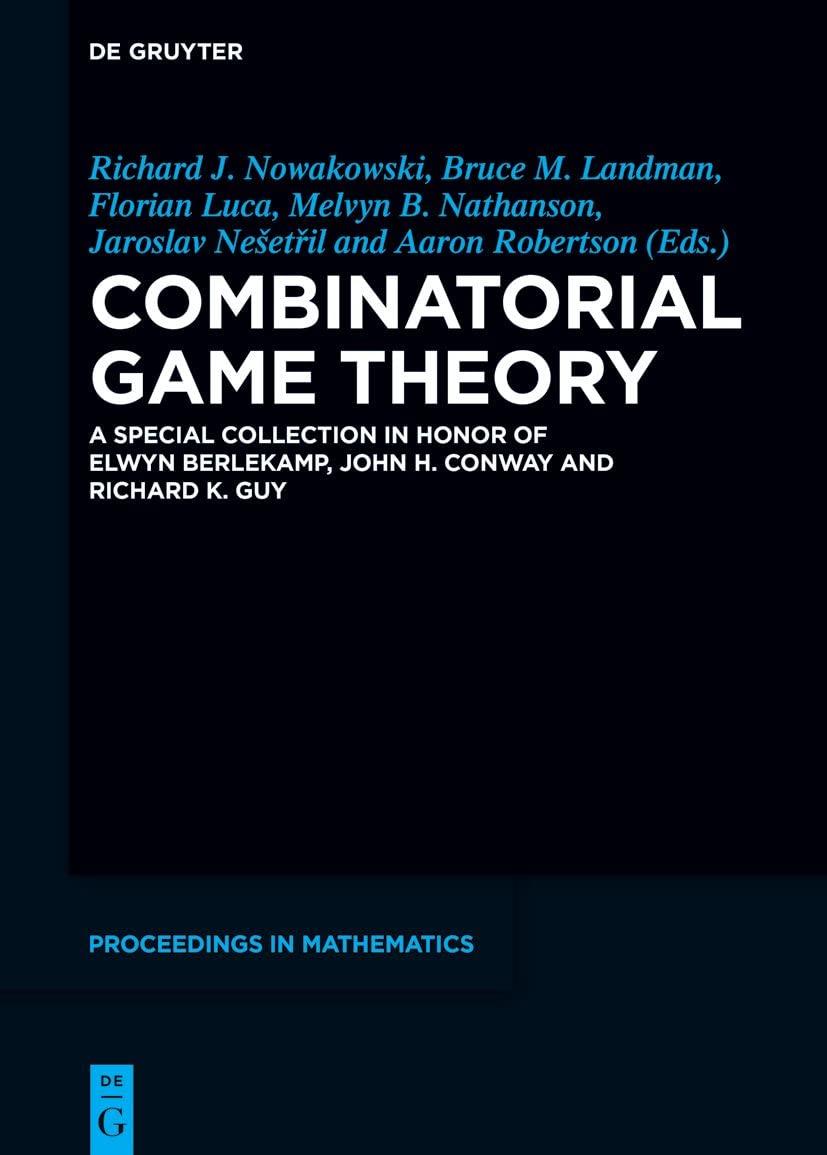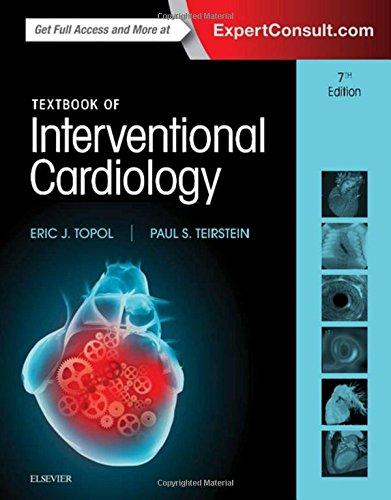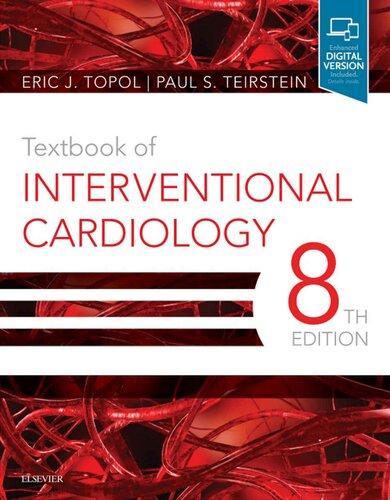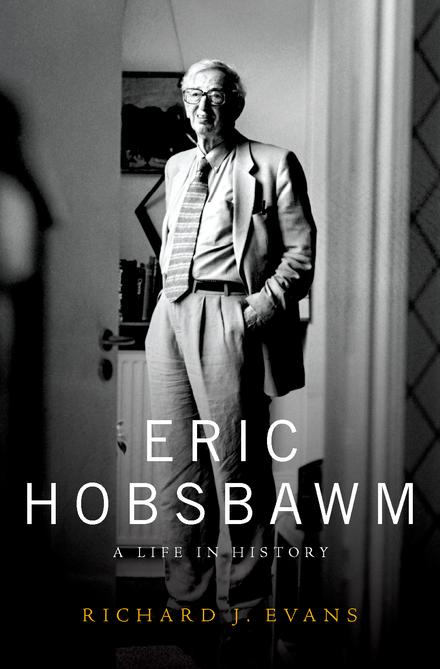P reface
At the time of his death in 2012, at the age of ninety-five, Eric Hobsbawm had for some years been the best-known and most widely read historian in the world. His passing merited front-page headlines not only in the United Kingdom but also in countries as far apart as India and Brazil. His books were translated into more than fifty languages. Almost all of them have been continuously in print ever since their first publication, which in some cases dates back to more than half a century ago. Millions of readers have found their combination of analytical rigour, stylistic brilliance, interpretative brio and entertaining detail impossible to resist. In Brazil alone, sales of his books totalled almost a million, and his Age of Extremes topped the bestseller lists for weeks. His work was not only very widely read, but also exercised an enormous and lasting influence on historical thinking, as he came up with a whole series of novel concepts ranging from the ‘general crisis of the seventeenth century’ and ‘the invention of tradition’ to ‘social banditry’ and ‘the long nineteenth century’. Debates on his work, from the standard of living in the Industrial Revolution to the origins of nationalism, continue to inspire new historical research many decades after he set them in motion.
Eric Hobsbawm’s huge reputation and global influence as an historian would alone be sufficient justification for devoting a biography to him, but he was also a public intellectual and influential spokesman for the Left, and not just in Britain. In the 1980s and early 1990s he played a key role in the political debates behind the
Eric Hobsbawm: A Life in History
rise of new Labour, a role that towards the end of his life he came to regret. Lula da Silva, who became President of Brazil in 2003, explicitly acknowledged Eric’s impact on his thinking, as did his predecessor Fernando Henrique Cardoso. Eric’s influence on the Left was equally notable in India and Italy. not for him the quiet life of a scholar shuffling between the study, the library and the lecture hall. For many years, his political activities were regarded as dangerous enough to attract surveillance by MI5.
This book is subtitled ‘A Life in History’ because Eric was not only an historian by profession but was also present at major moments in the history of the twentieth century, beginning with the nazi seizure of power in Berlin in 1933, and continuing through the first celebrations of Bastille Day after the election of the Popular Front in France in 1936, the Spanish Civil War in the same year, the outbreak of the Second World War in 1939, the war itself and on to the Cold War and beyond. His unpublished diaries and letters and the many other sources available to tell the story of his life give a vivid impression of Berlin, London, Cambridge and Paris in the 1930s, the British Army in the early 1940s, the McCarthyite atmosphere of the late 1940s and early 1950s, the crisis of Communism in 1956, the jazz scene in Soho in the late 1950s, the upheavals that convulsed Latin American politics and society in the 1960s and 1970s, the rise of ‘Eurocommunism’ in Italy around the same time, the political debates within the Labour Party in the 1980s, and the intellectual politics of France’s cultural elite in the 1990s.
This is a very long book not least because Eric Hobsbawm lived for a very long time. He remained active, intellectually undiminished and politically committed, into the second half of his tenth decade, writing and publishing all the time. But the book is also long because I have tried to let Eric tell his story as far as possible in his own words. He was a compelling and engaging writer, not just in his chosen field of history, but in many other genres as well. His immense output included short stories, poems, descriptions of the natural world, travelogues, political tracts, personal confessions, and much more besides. He knew how to tell a good story,
not only about the past but also about his own life. Although his historical works sold millions of copies in scores of languages across the world, much of his other writing remains little known. A good deal of the material presented in this book has never been published before; much of it is brilliant and deserves to be widely read. Any biographer who attempts a life of Eric Hobsbawm has to confront his own autobiography, Interesting Times, published in 2002. The book was, he said, more about the story of the public than the private man.1 His friend Elise Marienstras noted on reading that there were ‘very few personal things’ in it.2 And indeed, as Stefan Collini has observed, Interesting Times is ‘that curious hybrid, an impersonal autobiography. One learns from it rather more about the society and politics of the 20th century than about the inner life of Eric Hobsbawm.’3 This biography, therefore, while not neglecting Eric’s intellectual and political development, focuses above all on his personal experiences and indeed on his inner life. There are good reasons for this. He viewed his life, not as shaping anything very much in the wider scheme of things, but as being shaped by the times he lived through.4 As he later said, however, he was ‘psychologically an unsystematic, intuitive, spontaneous historian, disinclined to plan’.5 This book will show how his intuition as an historian was shaped not just by the political and historical context in which he lived but also by his personal circumstances, commitments and passions. I have tried to avoid overlap between this book and Interesting Times as much as I can, but inevitably, it has not always been possible, especially for the early part of his life. Still, Eric’s autobiography is above all a work of memory, while this biography is based overwhelmingly on sources contemporary with the thoughts and actions they describe. It does not in any way seek to replace Interesting Times, which can be read with profit and enjoyment alongside it.
I knew Eric not intimately, but for a fairly long time; to tell the truth, I was too much in awe of him to become a close friend, for I knew that on almost any subject on which we might converse, he would know infinitely more than I did. not that I agreed with him on everything, far from it; I have always been a social democrat
x
Eric Hobsbawm: A Life in History
in my political convictions. I could never accept the fundamental premises of Communism, least of all after seeing at close quarters what they produced in the grim, grey and joyless dictatorship of Communist East Germany when I got to know it during the researches I carried out for my doctorate in the early 1970s. But the task the historian has to fulfil above all others is to enter into an understanding of the strange and often alien world of the past, not to condemn it on the one hand or identify with it on the other. What I have tried to do in this book is to present Eric Hobsbawm to twenty-first-century readers and let them make up their own minds about what he said, did, thought and wrote.
Although he became embroiled in many arguments and controversies, Eric was as far as I can tell entirely without malice or ill will. Unlike so many historians and academics, he was never a ‘good hater’. He was kind, generous and loyal to a fault. Eric was a man who loved life and lived it to the full, as I hope the following pages will show. The more I have read his writings – and I have read the vast majority of them – the more I have come to admire and respect him not just as an historian but as a person, and wish I had got to know him better when he was alive.
In researching and writing this book I have incurred many debts. My first and most important is to Marlene Hobsbawm, who has been wonderfully supportive all the way through, and has supplied information and material I could not otherwise have obtained. I hope she is pleased with the result. I would not have embarked on this project had the Modern History Section of the British Academy not asked me to write the ‘biographical memoir’ that all Fellows receive after their death; a visit to Eric and Marlene’s Hampstead house, where a vast mass of personal papers awaited me on the top floor, convinced me that there was enough material to write a full-length biography. Alaric Bamping, Eric and Marlene’s son-in-law, kindly guided me through them and supplied at intervals further documents as they were discovered.
Most of Eric’s papers are now in the Modern Records Centre at the University of Warwick, and the staff have been unfailingly helpful and efficient during my many visits there. I am also indebted
to the staff at the BBC Written Archives Centre, Caversham; the Harry Ransom Center at the University of Texas, Austin; The national Archives; King’s College Archive Centre, Cambridge; Churchill College Archive Centre, Cambridge; the British Library of Economic and Political Science at the London School of Economics; the University of Manchester Archive; the Labour History Archive and Study Centre, People’s History Museum, Manchester; Cambridge University Library; Bristol University Library Special Collections; the David Higham Associates literary agency; Little, Brown archive; Weidenfeld & nicolson archive; the US Department of Justice (Freedom of Information requests); the Archivio della Scuola normale di Pisa; US Holocaust Memorial Museum Collections, Washington, DC; the Archives Fondation Maison des Sciences de l’Homme, Paris; the Centre des Archives Diplomatiques de nantes; the Archiv der israelitischen Kultusgemeinde, vienna; the Archiv der Fichtnergasse- Schule, vienna; the Wiener Stadt- und Landesarchiv, vienna; and the Dokumentationsarchiv des österreichischen Widerstandes, vienna. Because this book is based largely on unpublished archival material, I have dispensed with a bibliography. I have also tried to keep the notes to a minimum. All translations from French and German are mine; from Italian by Grazia Schiacchitano, and from Portuguese by Antonio Kerstenetzky. Material is still being transferred from the family to the Modern Records Centre at Warwick; references to the Hobsbawm Family Archive may need checking with the Centre. The Leverhulme Trust kindly awarded me an Emeritus Fellowship which allowed me to obtain research assistance, saving me an enormous amount of time: I am particularly grateful to Anna Grundy at the Trust for her support throughout the project. For help with the research I owe an enormous debt of gratitude to Roberto Asmat Belleza, Fiona Brown, Stephanie Chan, Daniel Cowling, Charlotte Faucher, victoria Harris, Yannick Herbert, Antonio Kerstenetzky, Rafael Kropiunigg, Johanna Langenbrink, Holly McCarthy, Mary-Ann Middelkoop, Emma notfors and Grazia Schiacchitano.
Eric Hobsbawm: A Life
in History
I am deeply indebted to the following people who kindly agreed to be interviewed or supplied information: Judith Adamson, Peter Archard, John Arnold, neal Ascherson, Maurice Aymard, Joan Bakewell, Logie Barrow, Henri Berghauer, Fernando Henrique Cardoso, Youssef Cassis, Geoff Crossick, Roderick Floud, Eric Foner, Roy Foster, Patrick Fridenson, Judith Friedlander, Marcus Gasparian, Edward Glover, Andrew Gordon, Lise Grande, Marie-Louise Heller, Angela Hobsbaum, Andy Hobsbawm, Julia Hobsbawm, Marlene Hobsbawm, Anthony Howe, Bruce Hunter, Joanna Innes, nick Jacobs, Martin Jacques, Ira Katznelson, Gioietta Kuo, Daniel Lee, Geoffrey Lloyd, Fritz Lustig, Alan Mackay, Jeremy Marchesi, Robin Marchesi, Elise Marienstras, Patricia McGuire, Alan Montgomery, Andrew Morris, Doug Munro, Michelle Perrot, Richard Preston, Stuart Proffitt, Richard Rathbone, Garry Runciman, Donald Sassoon, Pat Stroud, Pat Thane, Romila Thapar, Keith Thomas, John Thompson, Claire Tomalin, Lois Wincott and Chris Wrigley. My apologies to anyone I have failed to interview; I am sure there are many.
I am grateful to Bruce Hunter and Chris Wrigley, Eric Hobsbawm’s Literary Executors, for permission to quote copyright material in what follows. At the outset of the project, David Cannadine provided some sage and essential advice on biographical research. Rachel Hoffman, Bruce Hunter, Marlene, Julia and Andy Hobsbawm and Chris Wrigley have read the typescript and done a great deal to help improve it, as has my indefatigable editor at Little, Brown, Tim Whiting. To him, Zoe Gullen, Zoe Hood and Linda Silverman of Little, Brown, as well as Richard Collins, Daniel Balado and Christine Shuttleworth, I also extend my thanks for making the process of publication a smooth and enjoyable one.
I began working on this book at Wolfson College, Cambridge, and completed the first draft in the leafy, tranquil surroundings of the University of Richmond, virginia, and I am grateful to both institutions for supplying me with the facilities, the time and the space with which to write. Many friends have listened patiently to me as I have talked to them about the project, and I
Preface xiii
am particularly grateful to niamh Gallagher, Bianca Gaudenzi and Rachel Hoffman for their support. I owe more than I can say to Christine L. Corton, who read the early drafts, checked the proofs with a professional eye, and helped sustain me throughout the process of writing and research. When she first met Eric, in the early 1990s, she told me I would one day write his biography, and, as with so many other things, she has eventually been proved right.
Barkway, Hertfordshire, August 2018
‘The English Boy’
1917–1933 I
Throughout his life, whenever he filled in one of the many forms that required him to enter ‘place of birth’, Eric Hobsbawm was obliged to write down the unlikely location of the city of Alexandria, in Egypt. For a man who believed that very little in history happened by chance, it was ironic that so many of the circumstances preceding and attending his birth were strikingly accidental. At the same time, as he liked to point out later in life, he would not have been born where or when he was, without the multiple intersections of some very major events in world history.
The first of these was the troubled relationship between Imperial Russia and the area known in the nineteenth century as ‘Congress Poland’, whose sovereign was the Russian Tsar. Following an unsuccessful nationalist uprising in 1863, Congress Poland was ruthlessly incorporated into the Russian Empire, its separate identity and institutions obliterated. It was the home to a large and impoverished community of Jews, whose rights and freedoms were heavily restricted by the Russian government in St Petersburg. The Jews lived in the poorest parts of Poland’s towns and cities, forced to eke out a living in miserably paid and overworked artisan trades. Unsurprisingly, increasing numbers
Eric Hobsbawm: A Life in History of Jews began to emigrate to England and America from the 1860s onwards. The threat of conscription into the Russian army, especially when war with the Ottoman Empire threatened in the mid-1870s, concentrated the minds of young Jewish men in particular. Those who found their way to London began to form a distinct community among the East End poor. nine hundred of them were counted living there in the UK census of 1861, and 4500 in the census of 1881.1
Among the new arrivals from Poland in the mid-1870s was David Obstbaum, a cabinetmaker. Born in or around 1838, he had, according to family legend, walked from Poland to Hamburg when he was threatened with being conscripted into the Tsarist army.2 From there he came to London with his second wife Rosa, née Berkoltz, like him a native of Warsaw. She was considerably younger, born in about 1852. The couple brought with them two children: Millie, born in 1866 to David’s first wife, now deceased, and Louis, born in 1871 to Rosa. The name ‘Obstbaum’, meaning ‘fruit-tree’ in German (or, more probably, Yiddish, the language most commonly spoken by Jews in Congress Poland), was something of a tongue-twister for the English. On David’s registration as an immigrant in London, a Cockney immigration officer misheard his name, added what he must have assumed was a silent ‘H’ to the beginning, and dropped the unpronounceable ‘t’ so his name became Hobsbaum.3
The couple settled down to a steady if modest existence in their new home country. A second child, Philip, was born in Manchester on 12 May 1874; his grandson, also Philip Hobsbaum, born in 1932, became a well-known poet, critic and academic.4 Their third son, Aaron, known as Ernest, was born in London in 1878; his daughters Edith and Margarite became two further victims of British officialdom’s inability to deal with foreign names and were registered at birth with the name Hobsburn. A daughter, Sarah, known as Cissy, was born in 1879; in 1909 she married Louis Prechner, another man of Central European origin: their son Denis was born on 16 november 1916 in Stoke newington, a district on the northern edge of London’s Jewish East End. In due
‘The
3 course he became a prominent jazz critic and record producer. He was to play a significant role in Eric’s life.5
Altogether there were twenty-two members of the Hobsbaum cousinhood in Eric’s generation. Only a very few of them had any real contact with him, however, scattered as they were across various parts of the globe. ‘Ours’, as he later remarked, ‘ . is not a very close-knit family.’6 The two uncles who were to play the most important part in Eric’s life were Solomon (Sidney), born in Dalston, in north-east London, on 25 April 1889, and Henry, generally known as Harry, born on 9 July 1888, whose son Roland became Eric’s closest friend during his adolescence. All in all, the fact that seven out of David and Rosa Hobsbaum’s nine children reached adulthood speaks to a certain physical resilience in the family’s genetic constitution, though none of them survived into what we would now regard as old age; only Millie, David’s daughter by his first wife, escaped this fate, dying in 1966 at the age of ninety-nine, sixty years after she had emigrated to America with her husband. All of Eric’s first cousins, apart from Louis, who was born in Warsaw and therefore like his parents was naturalised as a British citizen, were born British and remained so throughout their lives; all of them were native English-speakers and all of them adapted quickly to English culture and English life; in fact, they were passionately ambitious to become ‘English in name, politics and culture’, as Eric later noted. They were mostly craftsmen or clerks: there was no record of rabbinical learning or business wealth in the family, and many of them had very little formal education.7
Eric’s own father, Leopold Hobsbaum, generally known as Percy, was born in Whitechapel, in the heart of London’s Jewish East End, on 8 September 1881, the fifth child of David and Rosa. While the two oldest sons of David Hobsbaum, Louis and Philip, followed in their father’s footsteps and became cabinetmakers,8 the others, including Percy, perhaps benefiting from the introduction of compulsory primary education between the ages of five and ten in Britain in 1880, made the social ascent into the ranks of the lower middle class. Ernest became a telegraphist, later graduating
Eric Hobsbawm: A Life in History
to a position as a schoolmaster. Harry was also a telegraphist, and his sister Sarah became a schoolmistress; Isaac trained as a chemist and later as a mining engineer. Sidney was a businessman in a minor way, though never, as it turned out, very successfully. So far, therefore, the story of the family following its establishment in London in the 1870s was not untypical of the social history of the Jewish immigrant community of the day. As relatively early arrivals, the Hobsbaums benefited from the liberal immigration policies of the victorian era, enjoyed a head start over later arrivals from Eastern Europe, and were able to escape the dire poverty that characterised the everyday life of East End Jews in the 1890s and 1900s.9
It was around the time that Percy reached adulthood that a second major aspect of world history impacted upon the Hobsbaums. Britain in the early twentieth century was at the centre of a vast global empire that included, though not in a formal sense, countries of South America such as Chile, where Eric’s uncle Isaac emigrated with his wife and children, inaugurating a long family connection with the country. Since 1869 a key element in the maintenance of the British Empire had been the Suez Canal, which shortened the route to India for seaborne traffic by seven thousand kilometres. To protect the canal, Britain had effectively taken over the administration of Egypt by force from the Ottoman Empire in 1882. By the 1890s the country’s major institutions were being run and staffed by the British, offering opportunities for employment to those who wished to make a career for themselves abroad.10
Percy’s brother Ernest moved to Cairo some time before the end of the nineteenth century, where at first he lectured to the Free Popular University and then managed to secure employment with the British-run Egyptian Postal and Telegraph Service; later on, he wrote novels about his experiences (Cross and Crescent and Draper’s Hall ), though they were not very successful. When Percy reached the age of majority, Ernest suggested to him that he might find congenial employment in the same institution. So Percy moved there to join his brother. In doing so, he also joined
‘The
the multinational, largely French-speaking expatriate community in Cairo and Alexandria. Social life was very active, and in 1913 Ernest married Jeanne Claeys in Cairo: their two daughters, Edith and Margarite, were born in the same city respectively in 1914 and 1915.
It was also in 1913, in one of Alexandria’s central expatriate social institutions, the Sporting Club, that Percy Hobsbaum met the eighteen-year-old nelly Grün, one of three daughters of Moritz Grün and his wife Ernestine, née Friedmann. Her family lived in vienna. Moritz and his wife were registered as members of the Jewish faith, and were engaged mainly in the jewellery business. They were relatively well off. Born on 7 April 1895, nelly had just graduated from secondary school, still an unusual achievement for a viennese girl. Moreover, she had passed with distinction.11 So, as a reward, her parents had decided to give her a holiday somewhere outside Austria. They chose Alexandria as a suitable destination because her uncle Albert, a successful merchant, had based himself there, running a well-stocked retail outlet. Percy and nelly fell in love and decided to marry. They got engaged and started making plans for their wedding.12
As their plans advanced, however, world history intervened again, this time in the shape of the First World War, which broke out in August 1914, with Austria-Hungary, Germany, Turkey and Bulgaria lined up on one side, and Britain, France and Russia, joined later by Italy and Romania, on the other. nelly worked for a time as a nurse in a military hospital while she and Percy decided what to do. Since nelly was Austrian and Percy was British, it would have been unwise for them to marry or indeed even meet in either of their respective native countries, as that would have resulted in the one or the other of them being interned as an enemy alien. They got married, therefore, in Zurich, in neutral Switzerland, on 1 May 1915, with the British Consul officiating, aided by a special permit personally signed by the British Foreign Secretary, Sir Edward Grey.13 After a brief honeymoon in Lugano, in southern Switzerland, the couple made their way to naples and then to Rome, in still-neutral
Eric
Hobsbawm: A Life in History
Italy (it was not until 23 May 1915 that the Italians entered the war, on the Allied side, despite their formal alliance with the Germans). From there they sailed to Alexandria, where Percy had his job in the Postal and Telegraph Service waiting for him and both he and his wife, now a British citizen by marriage, had relatives living.14
It was here, in the Sporting District of the city, situated between the seashore and the open spaces of the golf links and racecourse of the late victorian Sporting Club, that Eric came into the world on 8 June 1917. The British Consul, Mr D. A. Cameron, not only got the date wrong (he registered it as 9 June) but also misspelled Eric’s surname when registering his birth on 12 June: in English, ‘au’ at that time was pronounced ‘or’, and not ‘ow’, in the German manner, as it commonly is now, and so the Consul misheard the name, which presumably Eric’s parents failed to spell out, and put a ‘w’ instead of a ‘u’. Thus he became Eric John Ernest Hobsbawm. He derived his first name from a cousin born the previous year as the second son of Isaac Hobsbaum (‘Berk’), the uncle who lived in Chile. He was given the middle name ‘Ernest’ after the uncle based in Egypt.15 The rest of the family continued to be spelled ‘Hobsbaum’ with a ‘u’, except for those few members whose names were spelled, whether deliberately or accidentally, in some other way, like the Hobsburn sisters or Harry’s son Roland (Ron), whose school name tags gave his surname as ‘Hobsborn’ even though his official name at school was still Hobsbaum.16
Eric remembered little or nothing about his time in Egypt, ‘except, possibly, a cage of small birds in the zoo at nouzha, and a corrupt fragment of a Greek children’s song, presumably sung by a Greek nursemaid’.17 Within a few months of his birth, the stalemate of the First World War was broken by the October Revolution in Russia, when Lenin and the Bolsheviks seized power in St Petersburg. The fact that Eric was born in the year of the Bolshevik Revolution was, on the face of it, a mere coincidence, but none the less, one that somehow stood as a symbol for the political commitment he was to gain later on.
In november 1918 the war came to an end. The rapid rise of nationalism in Egypt, which was to culminate in a revolution in 1919, followed by independence three years later, was making the country uncomfortable for expatriates. So as soon as she could, nelly sailed to Trieste, which the peace settlement had transferred from Austria to Italy. She travelled in comfort on the first ship out of Alexandria, the steamer Helouan of the Lloyd Triestino Line, the two-year-old Eric in tow; Percy joined them in the early autumn.18 nelly’s father was waiting on the quayside at Trieste and took his daughter and grandson on the Southern Railway to vienna to live with him and his wife Ernestine in a second-floor flat in the western suburbs, at Weissgerberstrasse 14. visiting it for the first time since then, for a television documentary made in the mid-1990s, Eric pointed out the spare room to which his parents moved with him on their arrival. ‘Hasn’t changed much’, he commented, looking at the solid stone building from across the street. He did not accept the television director’s invitation to step inside.19
Some months after the family’s arrival in vienna, Eric’s father, flush with inflation-proof sterling from his years in the British Postal Service in Alexandria, rented a first-floor flat in the villa Seutter, which stood on a hill in the Hacking district of vienna. It dated from the 1880s, when Carl, Baron Seutter von Loetzen, had built it as a family home. It was a rather grand edifice, crowned with a four-sided dome and possessing extensive grounds in which Eric played with the children of the Gold family, who lived on the ground floor; nelly became close to their mother, sharing an interest in literature and culture.20 Post-war hyperinflation had forced the once-wealthy Seutter family to rent out the villa, and it took some time for their fortunes to recover so that they could repossess it: the building remains the family’s property to the present day. This was perhaps the most prosperous and certainly the most tranquil period of Eric’s childhood, although he was suffering at the time of the move there from a broken nose. ‘Eric was very ill
Eric Hobsbawm: A Life in History with it – he had a high temperature’, his mother remembered some years later, ‘and when we moved to Hacking in May, he was still bandaged. It was not pierced, it broke by itself, and perhaps that is why it took so long.’21
The large family group in which Eric spent his early years in v ienna centred on two married couples. First there were his mother nelly and her husband Percy. In 1921 they were joined by his uncle Sidney, who, remarkably, on 14 December 1921 married nelly’s younger sister Grete Grün, usually known as Gretl (born on 21 September 1897). Their son Peter came into the world on 30 July 1926.22 For much of the 1920s Sidney and Gretl lived in v ienna, where Sidney pursued various business interests, until they moved to Berlin towards the end of the decade.23 While they were in vienna, Eric became close to his aunt, as in 1925 he was sent for a short while to a sanatorium in the Alps to recover from an illness, and was looked after there by Gretl, who had also been sent there under medical advice.24 Then there were the Grün grandparents and assorted, more distant Grün cousins with whom this core group met from time to time. The third and oldest of the Grün sisters, Marianne or Mimi (born on 23 February 1893), was more distant but still in contact with the family.25 nelly’s relatives on her mother’s side, the Friedmanns, were also part of the wider family circle. There were other relatives in England. ‘If there was anything specifically Jewish about them’, Eric wrote later of the members of his family, ‘it was the assumption that the family was a network stretching across countries and oceans, [and] that shifting between countries was a normal part of life.’26
During the 1920s, Eric grew up in the social world of the v iennese bourgeoisie, though distanced from it to a certain degree because he, his parents and his sister, nancy (born on 5 november 1920), were British by background and citizenship.27 Still, to the end of his life when he spoke German it was with ‘a slight hint of an antediluvian v iennese accent’, as he confessed later, ‘that perhaps still lets itself be heard in my German after more than seventy years’.28 national identity was weak in the
‘The
First Austrian Republic, the residual, German-speaking part of the former Habsburg Empire left over when the ‘successor states’ of Yugoslavia, Czechoslovakia, Hungary and Poland became independent after the war. Reminders of the empire were everywhere: Eric later remembered a Slovenian child-minder who told him tales of werewolves from her home country; his relatives lived in or came from towns now in Poland, Romania or the Czech Republic; and the apartment building supervisors were almost certainly Czech. Thus, quite apart from his father’s English background, and his own first years in Alexandria, Eric grew up in a milieu that was cosmopolitan almost by definition. At the same time, the invariable medium of communication for the middle classes was German, which gave the v iennese bourgeoisie, including the highly acculturated Jewish population, an unshakeable sense of superiority over other national minorities.29 vienna was deeply scarred by the anti- Semitism of a strong minority among the bourgeoisie, encouraged by Karl Lueger, the pre-war mayor. The two hundred thousand people of Jewish descent in the city – 10 per cent of the population, including those who, like the Hobsbaums and Grüns, were not religious – could not escape from it. Austrian law required all citizens to be registered as members of a religion, and, although Percy described himself as ‘without a confession [konfessionslos]’, all official documents concerning him and his family described them as Jewish (mosaisch) by faith.30 Thus when Eric was in secondary school in vienna, he was excused Christian religious instruction and sent instead to an afternoon class for Jews in another part of vienna, where he was taught Jewish religious customs and learned to read Hebrew script, an accomplishment that he had, however, forgotten by the time he reached adulthood.31 He attempted to declare himself officially as not belonging to any religion the moment he was legally entitled to do so, at the age of thirteen, but his mother prevented him from carrying out his intention. Faced with hostile prejudices and negative stereotypes, Eric’s mother told him firmly when he was ten: ‘You must never do anything, or seem to do anything, that
Eric Hobsbawm: A Life in History might suggest that you are ashamed of being a Jew.’32 He always remembered this injunction, and, he confessed towards the end of his life, always did his best to live up to it.
Family life in the villa Seutter consisted of the usual routines. ‘I discovered Eric painting a picture for your birthday’, nelly wrote to her sister Gretl in August 1924. ‘Even he didn’t think it was very good.’ Her main worry was the inadequacy of their maid-of-allwork. ‘Her capabilities have been much exaggerated’, she wrote. The girl was eventually dismissed, and nelly fretted about doing without a servant during the winter.33 In the spring of 1925, she travelled to England to nurse her sister Mimi, who had fallen seriously ill, leaving Percy and her mother to look after the children.34 Eric was given three weeks off school to go and stay with his aunt Gretl in Berlin.35 The family could have managed without a servant, but although it might have been less stressful than actually having one, to employ a domestic in 1920s vienna was a mark of bourgeois status that nelly Hobsbaum did not want to abandon. ‘Try not ever to admit that you could do without a maid!!’ nelly told her sister: ‘A maid is just as much a necessity as food or a roof over your head.’36
neither the Hobsbaums nor the Grüns were well off. Such savings as the Grüns had accumulated disappeared in the massive inflation that followed the end of the First World War in Austria as well as Germany, and Percy’s reserves of sterling brought from Alexandria soon ran out. v ienna after the end of the war was no place for a man who answered the question ‘What are you best and worst at?’ with the words ‘Missing opportunities. Grasping them.’37 v ienna was full of highly educated and welltrained civil servants who had once run the Habsburg Empire but were now thrown out of their jobs because they had nobody left to administer beyond the six million inhabitants of the rump of German-speaking Austria. Propelled into economic misery along with them were all the shopkeepers, lawyers, manufacturers and tradespeople who had depended for a living on the patronage of the now-vanished Habsburg Imperial Court and administration. In this dire economic situation, Percy Hobsbaum
‘The English Boy’ 11 did not stand a chance.38 nelly earned some money by translating fiction from English into German, but it was by no means sufficient to keep the family going.39 On 13 May 1926 the family was forced by economic necessity to move from the expensive villa Seutter in the leafy suburb of Hacking to a cheap second-floor flat at Einsiedeleigasse 18, in the less fashionable district of Ober St veit.40
The move meant that Eric had to change to a second primary school in the precinct where the new flat was situated. He seems to have done well there, for he arrived at his first secondary school with top marks from his previous school in everything except for the neatness of his work. His secondary school reports for 1928 gave him a ‘very good’ grade in divinity, natural history and singing, ‘good’ in German, history and geography, as well as gymnastics, and ‘satisfactory’ in mathematics, drawing and writing. He was evidently a model pupil, since the report described his behaviour as ‘very good’. His teachers recommended him in their report of June 1928 for progressing to the next class above. Yet the instability of his schooling affected Eric’s education, throwing him back on his own intellectual resources. He began reading intensively from around the age of ten and never stopped until his dying day eighty-five years later.
He devoured books and magazines on prehistory and the natural world and became an enthusiastic and discerning birdwatcher: in 1927, on holiday in the village of Rettenegg, in the wooded Styrian hills, he ‘saw, for the first time in my life, the great black woodpecker, all one-and-a-half foot of it under the vivid red helmet, drumming against a stump in a clearing like a mad miniature hermit, alone under the stillness of the trees’.41 He also went to the theatre with his parents, and watched Charlie Chaplin films at the local cinema. He read popular detective stories, and mastered gothic German handwriting. In his spare time, he collected stamps, which showed him, he later remembered, ‘the contrast between the unchanging continuity of George v ’s head on British stamps and the chaos of overprints, new names and new currencies elsewhere’. His sense of instability was
Eric Hobsbawm: A Life in History
deepened by his registering in Austria of ‘the changing coins and banknotes of an era of economic disruption’. He learned about ‘war, breakdown, revolution, inflation’ from the adults around him.42 What intellectual stimulation Eric received at this time came not from his father, whose collection of books focused on adventure stories, including Kipling’s, which Eric ‘read without understanding’, and a volume of poetry by Tennyson, but from his mother, and from school.43
‘He is fine at school’, his mother reported in January 1929, ‘but his behaviour leaves something to be desired’, a criticism which, however, she failed to substantiate with any details.44 He was doing well in most subjects, though his struggling family sometimes baulked at the requirement to purchase textbooks, notably an expensive school atlas, which Eric persuaded his mother to buy despite the ‘sense of crisis’ her reluctance to buy it conveyed.45 ‘Eric’s report was very good’, his mother wrote at the beginning of February 1929, ‘he did well in all the main subjects, only a “good” in History (I don’t know why) and in Maths.’46 In Maths, he only scored ‘satisfactory’ in his first half-yearly report for 1929. He continued to gain grades of ‘very good’ in Divinity, German, Geography, natural History and Singing. In history he was just ‘good’, though he made up for this in the second half of the year with a string of ‘very good’ marks, as he did in every other subject, including the new one of Latin, but with the continuing exceptions of mathematics, gymnastics and handwriting, where his performance was deemed to be ‘satisfactory’. Overall he was recommended as ‘outstanding’ for progress to the next class.47
nelly clearly put a great deal of effort into encouraging Eric to read and to work hard at his lessons. She also gave him love and affection, providing him with emotional as well as intellectual stimulation. Indeed, Eric was far closer to his mother than he was to his somewhat unsympathetic father. A passionate anglophile, she spent a good deal of time correcting and improving Eric’s written and spoken English and made sure that only English was spoken at home.48 His school report for 1929 put down ‘English- German’ in the box denoting his ‘mother tongue’.49 He was, in other words,
‘The
bilingual, a native speaker of English as well as of German. His mother ‘dreamed’, Eric later remembered, ‘that I might one day find myself in the Indian Civil Service – or rather, since I was so obviously interested in birds, in the Indian Forestry Service, which would bring me (and her) even closer to the world of her admired Jungle Book ’.50 Her example as the author of novels and short stories surely had some influence in determining his later choice of career as a writer and laid the foundation for his mastery of English as well as of German prose style later in life.
Eric’s relationship with his father seems to have been far from easy. He later described him as ‘intelligent, agreeable, musical and a fine all-round sportsman as well as a lightweight boxer of championship standard’.51 Percy had been crowned amateur lightweight boxing champion of Egypt twice, in 1907 and 1908. He remained in Eric’s memory (or perhaps from photographs) ‘a medium-sized sinewy man in rimless pince-nez, black hair parted in the middle, with a horizontally lined forehead’. In a self-assessment album of the sort fashionable at the time, Percy wrote that he valued physical strength more than anything else in a man.52 It was not surprising that he was often impatient with his bookish, dreamy son. Percy took him to football matches, sang English music-hall songs to him, employed him as a ballboy in mixed-doubles tennis and tried, without success, to teach him boxing.53
Eric recalled many years later an incident, when he was about nine or ten years old, that summed up the sharp contrast in character between himself and his father:
He had asked me to fetch a hammer to knock in some nail, possibly something that had come loose from a deck- chair. I was at that time passionately into prehistory, possibly because I was in the middle of reading the first volume of the trilogy
Die Höhlenkinder (The Cave Children) by one Sonnleitner, in which a couple of (unrelated) Robinson Crusoe orphan children in an inaccessible Alpine valley grow up to reproduce the stages of human prehistory, from palaeolithic to something like recognizable Austrian peasant life. As they were reliving
Eric Hobsbawm: A Life in History
the stone age, I had constructed a stone-age hammer, carefully lashed to its wooden handle in the proper manner. I brought it to him and was amazed at his furious reaction. I have since been told that he was often short-tempered with me.54
The family’s income was boosted by an advance on a novel nelly received from a publisher early in 1929, but the improvement this brought about was only marginal.55 During a cold spell at the beginning of February 1929 the family could only afford to heat a single room in their apartment. ‘I usually haven’t got a single shilling in the house’, she confessed. She avoided paying bills as far as possible, but knew a catastrophe could hit the family at any time.56 She had fallen behind with the rent for the apartment in the Einsiedeleigasse and started to run up debts to tradesmen: towards the end of 1928 their landlord had threatened to cut off the gas and then given them notice to quit.57 III
Before the notice became final, however, a sudden and completely unexpected tragedy struck the family. On 8 February 1929 nelly went to answer a knock on the apartment block door, and, when she opened it, Percy Hobsbaum’s workmates, who had been carrying him home from work, put him down on the path, insensible, and left.58 Within a few minutes he was dead. He was only fortyeight. nelly remembered with horror his groans as he lay dying on the path, calling out to her. Recalling the catastrophe a few years later, Eric felt that his own tears were false. ‘You cry just because it’s expected of you.’59 However distant he felt from his father, however, there was no doubting the profound impact the disaster had on his life. The cause of Percy’s death was given as ‘heart trauma’. He was buried in the new Cemetery in vienna, in grave number 16, row 8, number 27, on 11 February 1929.60 Eric and his sister were now dependent entirely on their mother for their survival. nelly never recovered from the blow. ‘What I have just
‘The English Boy’ 15 been through has really torn me apart’, she wrote a week later. ‘Something has broken inside me.’ It was perhaps some consolation that Percy had been spared the further deterioration of their financial situation. ‘It wouldn’t have got better in the future, only worse’, she wrote. And she took some comfort in the fact that ‘the children, especially Eric, were very kind, Eric like a little man’.61 ‘You have no idea what a really wonderful little lad that boy is,’ nelly wrote to her brother-in-law Sidney Hobsbaum in a reply on his behalf to a letter of condolence he had sent Eric: ‘– if only his Daddy could see him.’ Sidney did not stop at condolences: he also sent nelly a cheque. It would, she gratefully acknowledged, ‘keep me another month’.62 Well before the end of March 1929, however, she was forced to admit: ‘I will very soon have no more money.’ 63 They had to move out of their flat on 11 March into an even cheaper one, at Untere Weissgerberstrasse 45, in the Third District of the city.64 The move did not greatly improve their fortunes. ‘Eric is more kind, good and charming a boy than I can say’, she told her sister Gretl: ‘But for the moment my attempts to get us by have met with very little success.’ 65 When Eric’s shoes needed replacing – they let in the snow and ice in the winter (‘I remember crying with the pain of it on the Ringstrasse’, he later wrote) – nelly was obliged to procure footwear for him from a Jewish charity.66
She visited Berlin briefly to stay with Sidney and Gretl and their young son Peter in the hope that a change of scenery would help restore her spirits, and returned to vienna in April 1929; appended to her letter of thanks to Sidney and Gretl is a brief note from the eleven-year-old Eric, in English, in an undeveloped schoolboy hand, the first piece of his writing that we have:
Dear uncle, I’m very sorry that I forgot your birthday. Many happy returns! I hope you are not angry because I write to you too late. Are you all well? Mummy has told us so much about the little boy and about you all. How he (Peter) always goes to the Tiergarten and how he plays there etc. etc.
